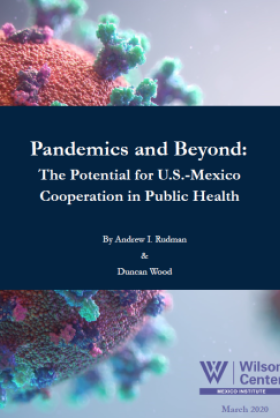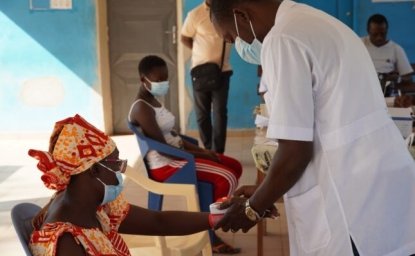Pandemics and Beyond: The Potential for US-Mexico Cooperation in Public Health


The outbreak and global spread of the COVID-19 coronavirus is having a profound impact on health systems and on decision-makers across the world. In North America, the response has been varied, with problems in testing for the virus in both the United States and Mexico, and an outlook that, at the time of writing, suggests that hospitals and medical professionals will be overwhelmed by the peak of the outbreak.
While the short-term future for all three countries looks highly complicated, the prospects for Mexico seem particularly perilous. The last of the North American neighbors to be hit by the pandemic, Mexico faces an extra challenge due to limited resource availability. Slowly the government appears to be waking up to the severity of the crisis, but there are widespread fears that the health system will be totally overwhelmed by the approaching crisis, with medicine in short supply and budgetary cuts hitting health care delivery even before the outbreak.
The first half of this paper examines the existing institutional mechanisms for cooperation in the area of pandemic outbreaks between Mexico and the United States, and stress the urgent need for a coordinated response. The recent history of such coordination has been one of success, but after each episode, the governments have recognized the need for modifications to existing frameworks and for policy learning from the experience.
The second half of this paper examines the potential for public health cooperation beyond pandemics. Though this may seem a secondary concern at the time of writing, there is a pressing need for authorities in both countries to extend and deepen their cooperation beyond the current crisis. Harmonizing regulatory practices to make it quicker to get drugs to market, making clinical trials more effective and richer in data, encouraging an integrated market for health care services, benefiting from integrated production processes in medical devices and investing in human capital would all positively impact the prevention and handling of future crises.
Contributors



Mexico Institute
The Mexico Institute seeks to improve understanding, communication, and cooperation between Mexico and the United States by promoting original research, encouraging public discussion, and proposing policy options for enhancing the bilateral relationship. A binational Advisory Board, chaired by Luis Téllez and Earl Anthony Wayne, oversees the work of the Mexico Institute. Read more

Explore More
Browse Insights & Analysis
Russia’s Security Approach to Public Health

WIPO is AWOL



